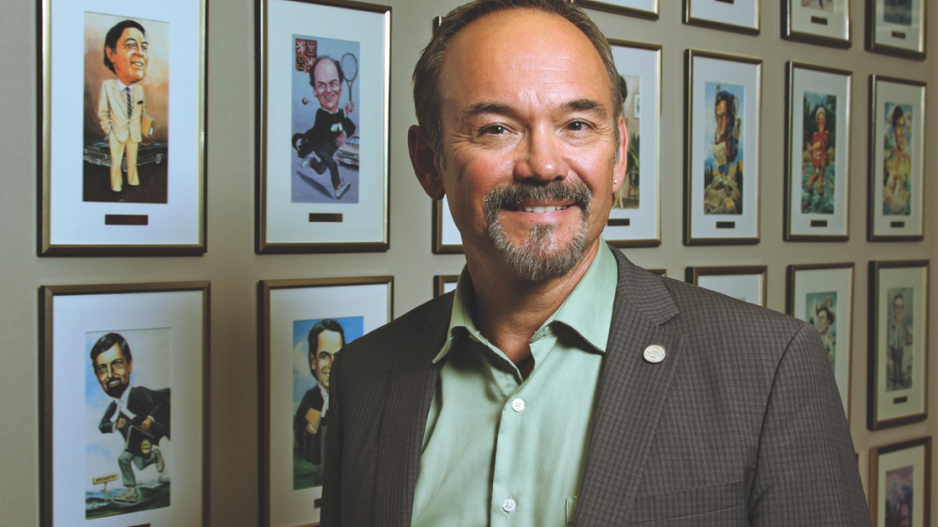Growing up in the Okanagan in the 1950s and ’60s, life was idyllic for Michael Welsh. As president of the Canadian Bar Association’s B.C. branch, the Penticton-based lawyer has nothing but fond memories from his childhood – a period that might now seem like a whole different world.
“I look back on it as a really wonderful time,” said Welsh, who was born in Penticton in 1953. “It was a beautiful place to grow up at a time when you had a lot of freedom as a kid. You could go up hiking in the hills or take your bike and go off biking with your buddies. Or go down to the beach or go horseback riding. And we had the freedom to do a lot of those things, much more than kids do now.”
Raised mostly in nearby Summerland, Welsh graduated from high school in 1971 and set his sights on university.
His father was a research scientist with the Department of Agriculture and Agri-Food, and received an appointment to teach as an associate professor at Cornell University. Welsh followed his father east, graduating with a degree in philosophy from the Ithaca, New York-based school in 1975.
During his four years, he said it wasn’t always in the classroom where he learned to delve deep into the human mind or form a cohesive argument; the local campus pub often served just as well for that purpose.
“We would have these wonderful conversations that would seem to go all night,” he said. “And they seemed to get more wonderful as we had some wine and beer for some reason. And I just really enjoyed it, a good rigorous intellectual exercise in helping me to think clearly.”
Welsh took a particular liking to Ludwig Wittgenstein, an Austrian-British philosopher whose teachings were divided into two, almost contradictory periods of study concerning the nature of logic.
After graduation Welsh returned to B.C., where he found having a liberal arts degree didn’t necessarily bolster his resumé.
He worked a number of odd jobs before landing a position within the BC New Democratic Party government’s expanded legal aid department. Welsh worked as a community legal worker and helped out in administration from 1975 to 1978 for the Legal Services Society and the Westminster Community Legal Services Society.
“I got really lucky to get that position and it opened up a whole world to me,” he said.
Welsh was sold on the work – he loved every aspect of law. By 1980 he had his law degree from the University of British Columbia, and he found a position as a judicial clerk for the Supreme Court of Canada. He articled at Russell & Dumoulin Barristers & Solicitors in Vancouver from 1981 to 1983 and was called to the bar in 1981.
Instead of continuing to work in downtown Vancouver, Welsh decided on a change of geography. He’d bought a property in Gibsons on the Sunshine Coast, and he eventually took a job at a smaller firm in the area. From 1983 to 1997 he worked in Sechelt as a partner, handling a range of civil, family and criminal cases.
Although he enjoyed the hustle and bustle of downtown, his home region was calling – again.
“The Okanagan lured me back,” he said. “My father, in addition to being a scientist, had an orchard, and so I was used to working in orchards growing up and I made a lot of my money to pay my way through university. And I decided to get involved in the grape and wine industry.”

Having taken a wine tasting class through Cornell University’s School of Hotel Administration during his undergraduate studies, Welsh decided to dive into the world of grape growing. B.C.’s wine industry at the time was just beginning, so he bought an old apple orchard near Osoyoos, ripped out the trees and put in a commercial vineyard that he then ran for a decade.
The region has a deep hold on him.
“I’ve always left a piece of my soul here,” he said. “And I was happy to come back to this area; it is such a beautiful area of this world. Anywhere that you can grow grapes in the world tends to be quite a beautiful place.”
Welsh also set up the first iteration of his current practice, Mott Welsh & Associates, also moving from Oyosoos back to Penticton. He obtained various levels of accreditation in the world of mediation, hoping to speed up the wheels of justice.
“The nature of my career has evolved over the years,” he said. “I took a fairly big career change a few years ago and I started getting more involved in alternative dispute resolutions, looking to find ways to assist people and businesses stay out of the court system by trying to resolve their disputes through mediation or arbitration or a combination of the two where I act as the neutral party.”
Welsh gained a reputation for fairness through years of adherence to high ethical standards in the courtroom, said Bruno De Vita, a managing partner for Alexander Holburn Beaudin + Lang. Working together on a case that went to trial a few years ago in Vancouver, the two were acting for different parties but had a common interest, which led to a great deal of co-strategizing.
“Michael had the added challenge of having a client who had no hearing, and so all of his client’s evidence had to be given through two sign-language experts,” De Vita said. “Michael did a fantastic job. He’s a natural courtroom lawyer.”
Now settled in Penticton, Welsh is still involved in the wine industry as a writer and judge, and he continues to enjoy the Okanagan’s outdoor lifestyle. He also continues to dabble in another of his hobbies, acting for the stage. A few years ago he played Inspector Javert in Les Misérables through Penticton’s Soundstage Productions. Welsh said many lawyers use stage play to help sharpen their speaking and presentation skills, and he offered a quip as to why so many dabble in the world of theatre.
“My own theory is that lawyers are all just really frustrated actors.” •




